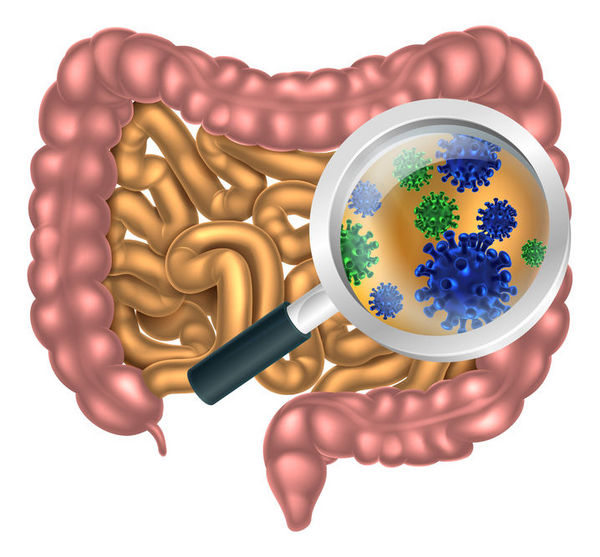In the digestive system of human body, "good" bacteria will produce a chemical substance that will change chromosomes in nearby cells. This discovery will help us better understand the relationship between diet and cancer.
The research team led by the British institute of Babraham found DNA in human colon epithelial tissue, which contains a special chemical that can be used as an epigenetic switch to turn genes on and off.
More importantly, the study found that in another part of the body, the brain, the content of these chemicals has also been increased.
Crotonylation is a recently discovered gene compilation process, which is different from a more common gene manipulation method called methylation. In both processes, the way of gene compilation has changed, by adjusting the surrounding chemicals, without changing the actual code itself.
Methylation is the addition of methyl (CH3) to nucleotides, usually cytosine (C), but occasionally adenosine (A), which transfers acetyl groups to histone proteins to keep DNA chains in order. The researchers found croton acylated histone in intestinal tissue, which shows that something really prevents cells from removing those acetyl groups. When the fiber of fruit in intestinal tract is fermented by microorganism, it will produce a micro-organic molecule called short-chain fatty acid (SCFA). Previous studies have shown that there is a connection between cell metabolism and croton acylation modification, and these short-chain fatty acids are the culprit.
The researchers analyzed tissues from colon, brain, liver, spleen and kidney, and found that there was a higher level of histone crotonylation modification in brain and colon. Why do these substances appear in the brain and not in other organs? This is still a mystery. However, this new study shows that it is bacteria that ultimately leads to this abnormal phenomenon. "Short-chain fatty acids are the key energy sources of intestinal cells, but we have also proved that they affect crotonylation modification of genome." Rachel from the Babraham Institute explained.

Specifically, short-chain fatty acid molecules produced by bacteria found in healthy human colon promote croton acylation modification by preventing an enzyme called histone deacetylase -2 (HDAC2) from removing labels. In order to prove that bacteria really work, the researchers set up a control group. They injected antibiotics into mice to destroy most of the bacterial flora in their intestines. Not only the content of short-chain fatty acids decreased, but also the crotonylation modification of histones in their intestines decreased.
This study may have some beneficial effects, such as knowing how human genes are affected by their own diet, which may help us to solve the relationship between diet and intestinal cancer to some extent. About 770 thousand people die of intestinal cancer every year in the world. Finding more ways to prevent and treat this disease is the first task of researchers.
At the same time, it also reminds us to pay attention to diet and ensure that not only our bodies get good nutrition, but also the smallest citizens in our bodies.
Patrick Varga-Weisz, the chief scientist of the study, said, "The intestines in the human body are home to countless bacteria.These bacteria help to digest food such as plant fiber, and they will also become a barrier to harmful bacteria and form our immune system.How these bacteria affect human cells is a key part of this series of processes.
[Disclaimer] The texts, pictures, audio and video that are not marked with "Source: Upstream News-chongqing morning post" or "Upstream News LOGO" on the upstream news client are all reposted. If the reposted manuscript involves copyright issues, please contact the upstream news.
关于作者